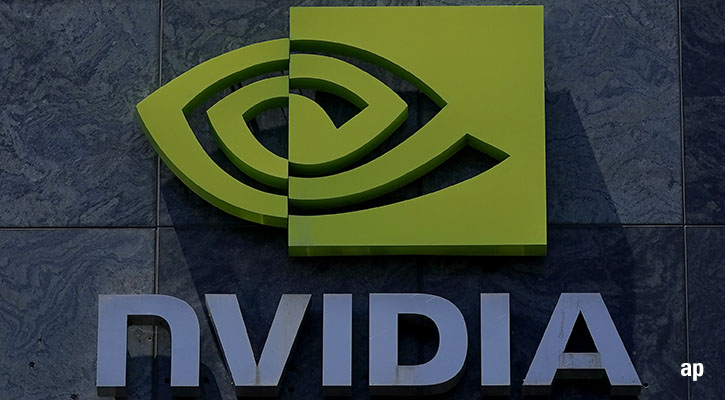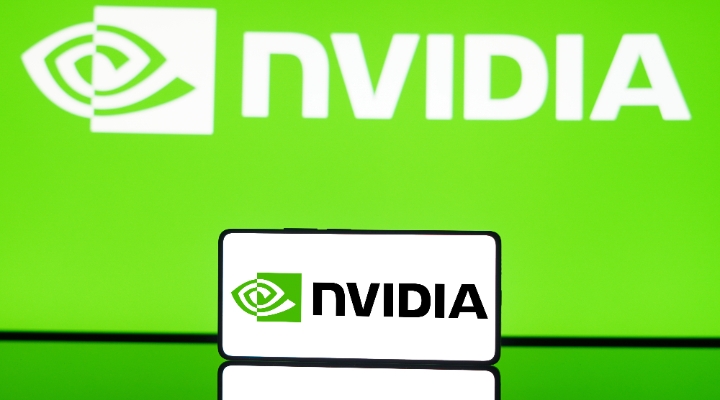
As the 2023 tech recovery gathers pace, there’s one stock investors are obsessing over: Nvidia (NVDA). The Nasdaq-listed company reached a milestone in May when it reached a $1 trillion market capitalisation, making it the first global semiconductor company to do so.
Just as Tesla became the focal point for mass adoption of electric cars in 2020, rising 800% in value in one year, Nvidia is now being pitched as the bellwether for the AI revolution. Can it live up to the hype?
Our analysts think its shares have already overstretched themselves after a 170% gain so far this year. They raised the fair value from $200 to $300 but with shares now just shy of $400, they’re screening as overvalued. For a summary of the bull and bear cases for the stock, read this: Nvidia Upgraded But Shares Now Overvalued.
Analyst Brian Collelo has looked at the markets served by Nvidia in terms of their growth potential, including computer games, data centres, and automotives.
"We expect the firm to dominate the training portion of deep-learning AI workload [...such as] large language models, other forms of generative AI, deep recommendation engines, and autonomous vehicle fleet data processing and training," he says.
In terms of what is being labelled the "AI arms race", investors naturally want to know which superpower to back. But investing is rarely that simple – Morningstar analysts have already identified an early leader in artificial intelligence in the form of Microsoft.
As always, there’s a danger of jumping on a bandwagon that is already in motion (unless you’re one of the rare elite group of traders who can profit by momentum and hype, buying ahead of price surges).
Nvidia certainly has a lot of hype at the moment, especially after the company’s blowout earnings report at the end of May, when shares soared nearly 25%. Its recent strong run also has a back story, though. Shares fell 44% in 2022 during the tech selloff, but this followed a 126% gain in 2021. Great leaps ahead have been followed by painful retrenchment in the last few years. Its sudden renaissance has caught investors by surprise.
For those investors who might balk at Nvidia's valuation, other chipmakers are also in the mix: Advanced Micro Devices (AMD), up 91% YTD, TSMC (2330), up 23% YTD - Morningstar analysts think that TSMC is still significantly undervalued. US stalwart Intel (INTC), considered fairly valued by our analysts, is also 13% higher than at the start of the year. Europe has its own Nvidia in the form of ASML (ASML), a Netherlands firm which provides equipment to the semiconductor makers. ASML's shares are 29% higher since the start of the year, surging after Nvidia's earnings. The industry is very interconnected after all - TSMC makes chips for ASML, for example.
Former UK tech darling ARM Holdings, bought by SoftBank in 2016, is expected to relist on the stock market this year - but New York seems the most likely venue. Its valuation will no doubt reflect the current levels of excitement surrounding semiconductor stocks.
As Tesla showed us, professional investors are often one step ahead of the crowd, so it’s useful to see which UK funds already have exposure to Nvidia. We’ve looked at the funds with a minimum 1% exposure to Nvidia and also a Morningstar Medalist Rating of Negative and above – the search came up with 326 funds, suggesting it's firmly been on the radar of active managers.
Starting with open-ended funds for sale in the UK, Martin Currie US Unconstrained has the highest weighting towards Nvidia with 8.27%. The fund has returned 17.37% so far this year, but it’s not the best performer on our list – that accolade is held by Natixis Loomis Sayles US Equity Leaders, a Gold-rated fund which also has the best three-year performance.
Silver-rated Baillie Gifford Worldwide Discovery and Baillie Gifford Global Growth just missed the cut, placing at number 11 and 13.
JP Morgan American (JAM) and Scottish Mortgage (SMT) investment trusts have weightings over 3%. Gold-rated Scottish Mortgage was early to the Tesla story, and its share price doubled in 2020. Since then it has struggled to match that vintage year, falling from a peak above £15 per share in late 2021 to £6.88 now.
While it’s still the largest investment trust in the UK at just shy of £10 billion, veteran manager James Anderson has since retired and there have been disagreements at board level about investing in unlisted companies. Nvidia is the trust’s sixth biggest holding, and it first appeared in the portfolio as far back as July 2016.
JP Morgan American also has a strong track record and counts Nvidia as its seventh biggest holding, having initiated the position in December 2022.
In terms of exchange-traded funds, thousands of products have exposure to Nvidia because it’s a US tech firm, so there are too many to list. But one popular thematic ETF is iShares Automation and Robotics (RBOT), a Neutral-rated fund which has Nvidia as its top holding with a 2.23% weighting.


























